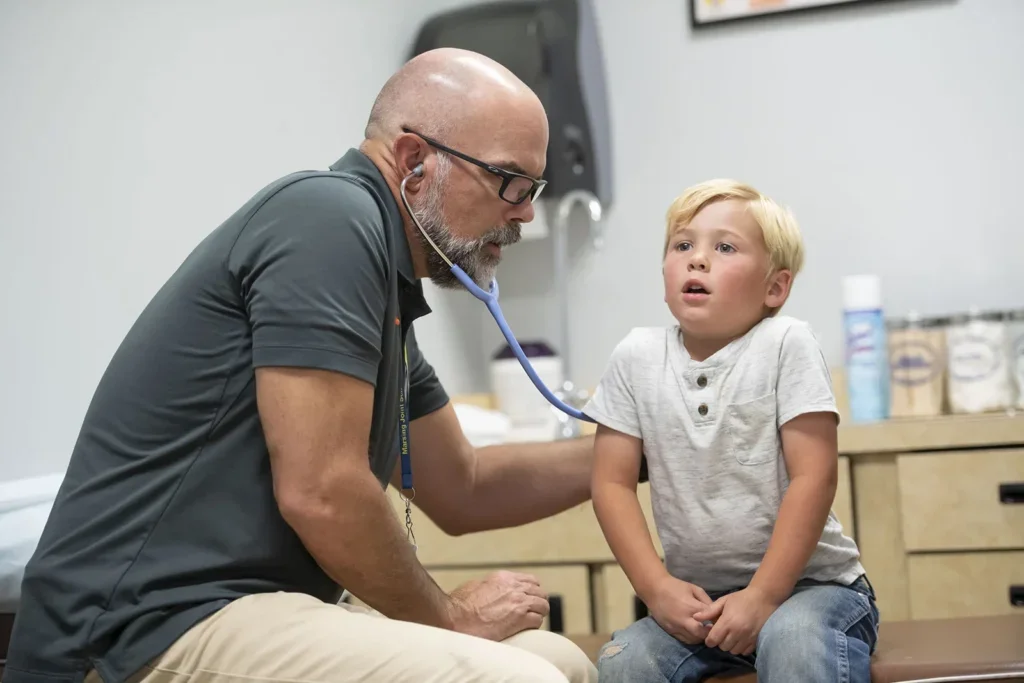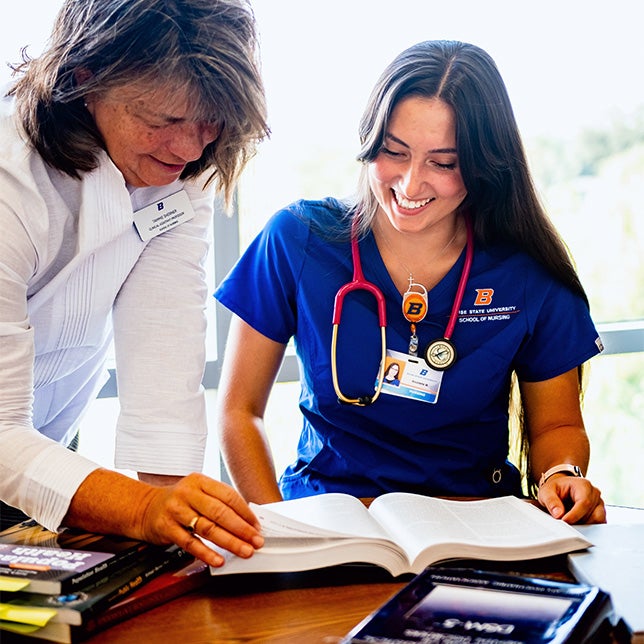Undergraduate research assistantships in the School of Nursing aren’t just impactful for students; faculty also notice benefits from the mentorship-type program.
“Research Assistants play a crucial role in strengthening our School of Nursing’s research culture by creating peer mentorship opportunities and demonstrating the importance of research to other nursing students,” said assistant professor Ryoko Kausler. “They contribute to building a pipeline of future nurse scientists and help translate research findings into practice through their clinical experiences. Their involvement helps build research capacity at our institution while fostering a culture of inquiry and evidence-based practice.”
Associate professor Max Veltman works on several projects aiming to address potential inequities in access to health care services and possible systemic flaws that could impact allocation of community resources. Collaborating with undergraduate research assistants always benefits his projects, he said, starting from day one when he explains his work to them to “get them ‘up to speed’.”

“This process nearly always forces me to stop and review how things have been progressing and every time I do this, I always find flaws or think of new ideas as reflection breeds innovation,” he said. “And the students themselves often give me a lot of insight…I always learn from them.”
“Students ask great questions and bring energy and creativity to the research team,” said Amy Spurlock, professor and Jody DeMeyer Endowed Chair in Nursing. “They are not as entrenched in ‘old’ ways of doing things and bring a new perspective that is needed.”
Kausler also considers students’ innovative ideas and collaboration “invaluable,” she said. “Their questions challenge me to examine research problems from new angles, and their enthusiasm enhances project momentum.”
Kausler studies maternal mental health. She hopes to improve patient outcomes by using technology to increase access to care and by developing culturally appropriate interventions based on individuals’ feedback.
“Our research methods take community experiences and needs into account by seeking input from the people who will be most affected by the results of our study – the participants,” said Amber Baranek, who works with Kausler as a research assistant. “I realized just how important it was to derive our information from [patient] voices…If we are to direct our knowledge in a way that will facilitate better outcomes for them, we must take our study population into account when determining what is needed to progress forward.”
“I am hopeful that this study will inform how we conduct mental health care for women at risk of perinatal substance use, depression and anxiety,” Baranek said. “Health care in itself can be difficult to access, and mental health care can be even more complex to navigate for some people. If it is found that telehealth is a feasible method for providing this care, we may increase both accessibility and motivation for patients to seek the care they need.”
“Providing vulnerable populations with the opportunity to learn about their mental health from their own home would be extraordinary,” she said.
Why become an RA?
“I feel that I have developed a genuine tie with the community because now we are not just living in the same space, but actively collaborating and having conversations to create new ways of managing mental health,” said Baranek. “[Kausler] taught me the importance of all these elements while having the patience to help me when I did not understand.”

Both Baranek and research assistant Matthew Bailey noticed how their time management and organizational skills grew. Bailey also greatly developed his writing abilities and considered his time working alongside professors “extremely valuable.”
“I was able to get real experience to decide if research is a role I would like to pursue in the future,” he said. “The faculty were understanding of my workload and willing to help with anything I needed. I appreciated being able to bounce ideas and goals I have for myself off of nurses and educators that had achieved those same goals and they were able to provide realistic timelines and steps I can take to achieve them.”
“The research assistant experience is something that I am so grateful for because it has broadened my views of patient care and allowed me to network and create useful, professional relationships,” said Emma Stover, a second-semester nursing student also working with Kausler.
“Through [Kausler’s] guidance and knowledge I have learned about research and the nursing field. This has given me more insight and knowledge in what nursing area I would like to go into along with how important research is to improving healthcare.”